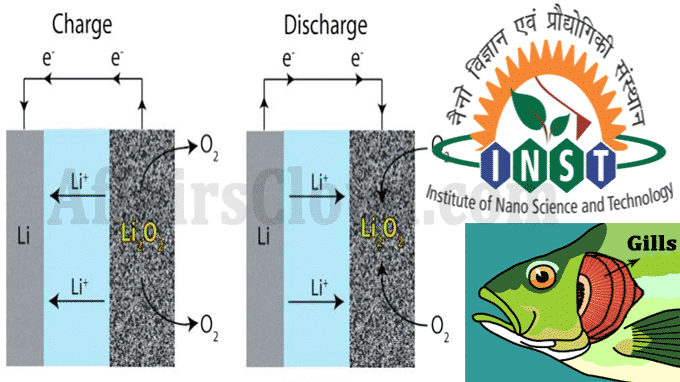On April 20, 2020 The Scientists at the Institute of Nano Science and Technology (INST), Mohali, an autonomous institute under the Department of Science and Technology(DST) developed an efficient, low-cost electro-catalyst from fish gills that helps to develop environment friendly energy conversion devices & it is better than commercial Platinum on carbon (Pt/C) catalyst.

Key Points
i.This bio-inspired carbon nano structure will help overcome many obstacles in realisation of several renewable energy conversion and storage technologies such as fuel cell, biofuel cell, and metal−air battery
ii.It can be utilised as a next-generation non-precious carbon-based electrocatalyst for energy conversion and storage applications.
iii.The careful selection of transition metals and hetero atoms together with the engineering of the synthesis protocol has paved a new way for exploring highly active low-cost electrocatalysts, it is explored by Dr. Ramendra Sundar Dey and his team.
About the Research
i.A highly active Oxygen Reduction Reaction (ORR) electrocatalyst based on binary transition metals Iron (Fe), and Manganese (Mn) and N-doped porous carbon (Fe, Mn, N-FGC), derived from fish gills (FG) acquired as animal waste, which consist of unique porous structure and also provides conductive carbon networks after heat treatment and is efficient electrode material.
ii.The catalyst shows active oxygen reduction reaction in a wide range of pH (pH < 1, 7, and >13).
iii.Developed a home rechargeable Zn – Air Battery (ZAB) with the catalyst as an air cathode, which showed almost stable charge−discharge voltage plateaus after rigorous cycling for a long period.
iv.The reason for the outstanding performance of this catalyst is the presence of Fe−Mn based binary component, which is beneficial for the Oxygen (O2) binding and to boost the ORR catalytic performances in the alkaline medium by weakening the Oxygen-Oxygen bonds.
About INST:
Headquarters– Mohali, Punjab
Director– Amitava Patra




